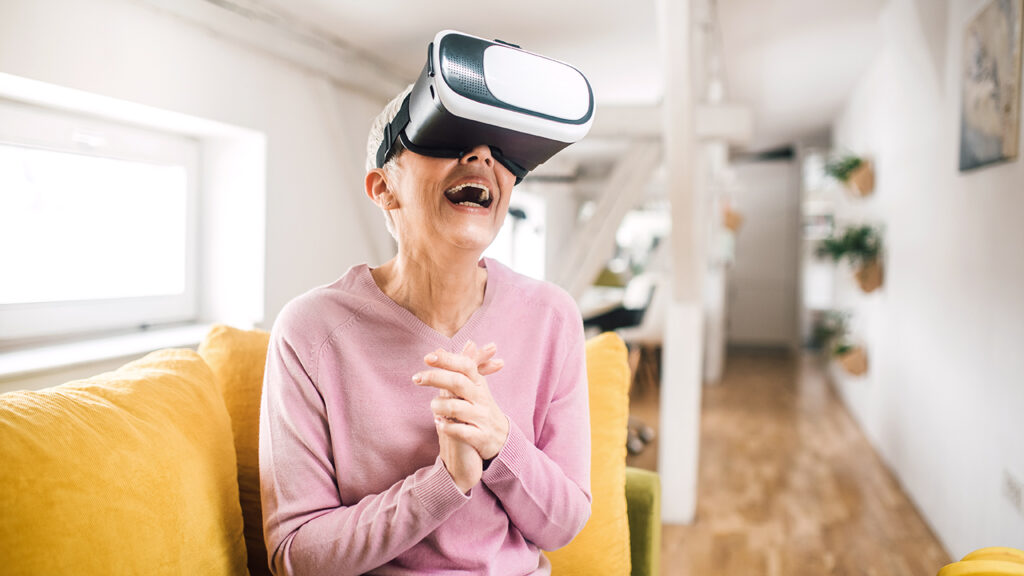

Virtual reality, as deployed in senior living and care, so far has been an incredible success story, with the technology earning many accolades and generating few concerns.
But just because studies have gone easy on VR’s potential drawbacks doesn’t mean that concerns don’t exist, experts warn.
A recent overview of VR tech in the sector mostly failed to find any concrete concerns about how the tech is affecting residents. The story, published recently in the Washington Post, even noted that VR is slightly preferable to older adults sitting on a couch watching TV all day, in terms of health risks from being too sedentary.
The story, however, highlighted some broad areas of concern. They included issues endemic to all new tech that is emerging, such as the need to ensure privacy protections.
Although VR, along with artificial intelligence and robotics tools, thus far is being used in long-term care settings as a valuable complement to existing caregivers, it is easy to imagine how the technology could be used simply to remove human care elements in the future, the story noted.
Experts quoted in the story provided the contrast of an older adult “hiking” with his or her loved one in a virtual nature setting versus the future possibility that the person would have to make due with a fake avatar, known in video game parlance as a “non-player character.”
Despite the light notes of caution presented in the story, overall studies and reports conducted in the past year have painted a very robust and promising picture of VR use for older adults. That goes beyond entertainment and includes possible clinical and therapeutic uses.
Maybe most significantly, VR tools appear to improve older adults’ socializing and reduce feelings of isolation rather than contribute to it.
In addition to interacting with peers through the VR, older adults can use the entertainment as a conversation piece or it can greatly improve the relationship between residents and their caregivers, many of whom act as guides for the VR programming, experts have told the McKnight’s Tech Daily.


